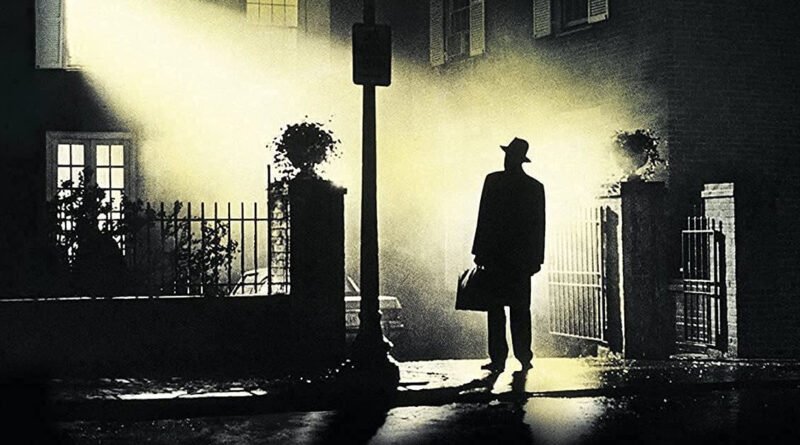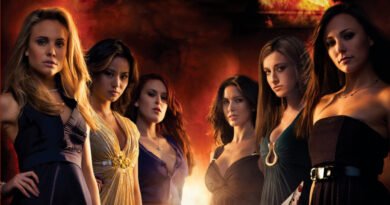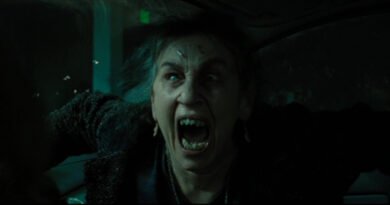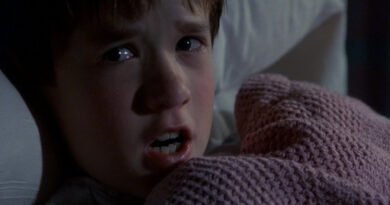The Exorcist (1973): A Timeless Classic of Demonic Terror

Title: The Exorcist (1973)
Writer(s): William Peter Blatty
Director: William Friedkin
Main Cast: Actor (Character): Ellen Burstyn (Chris MacNeil), Linda Blair (Regan MacNeil), Max von Sydow (Father Merrin), Jason Miller (Father Karras), Lee J. Cobb (Lt. Kinderman)
Synopsis
When young Regan MacNeil begins to exhibit disturbing behaviour—including violent outbursts, speaking in tongues, and supernatural feats—her mother, actress Chris MacNeil, seeks medical help to no avail. Desperation leads her to contact the Catholic Church for an exorcism. Two priests, the elderly and experienced Father Merrin and the troubled Father Karras, are tasked with confronting the malevolent force possessing Regan. What follows is a harrowing spiritual and psychological battle against evil.
What Works
The Exorcist is a masterclass in atmospheric horror. William Friedkin’s direction, combined with a powerful script by William Peter Blatty (based on his own novel), delivers a story that is both terrifying and deeply human. The pacing is deliberate, allowing tension to build steadily as disbelief gives way to dread.
The performances are superb. Linda Blair’s portrayal of Regan is both physically and emotionally demanding, and remains one of the most iconic in horror history. Ellen Burstyn brings emotional gravity and realism as the anguished mother. Max von Sydow and Jason Miller provide moral and spiritual weight as the priests facing unfathomable evil.
The film’s practical effects were groundbreaking at the time and remain effective even today. The use of sound, particularly the eerie use of silence and the now-iconic “Tubular Bells” score, is chilling. The makeup, especially during Regan’s transformation, is both grotesque and memorable.
Thematically, the film explores faith, guilt, and the clash between science and religion. It treats the idea of possession not just as spectacle, but as a metaphysical and emotional crisis.
What Doesn’t Work
Some modern viewers may find the film’s pace slow, especially compared to today’s fast-cut horror style. The first hour is heavily focused on medical diagnostics and character development, which, while enriching the story, may test the patience of those looking for immediate scares.
A few effects, particularly in the more physically intense scenes, can show their age when viewed in high definition. Additionally, some of the film’s religious overtones may not resonate with all audiences and could feel heavy-handed to those less interested in spiritual themes.
Final Thoughts: Does It Hold Up?
Absolutely. The Exorcist not only holds up—it continues to set the benchmark for serious, emotionally resonant horror. Its blend of psychological tension, theological depth, and visceral scares make it a timeless classic. The film’s impact on pop culture and the horror genre cannot be overstated, influencing countless films and remaining essential viewing for any horror fan.
Who Would Enjoy This Episode?
- Fans of classic horror and slow-burn psychological thrillers.
- Viewers interested in religious or supernatural themes.
- Those who appreciate strong character-driven stories within the horror genre.
- Cinephiles who value historically significant films in cinema history.
Who Might Not Enjoy It?
- Audiences looking for fast-paced, modern-style horror with constant action.
- Viewers uncomfortable with religious or spiritual themes.
- Those who prefer minimal dialogue or purely visual storytelling.
Final Verdict
The Exorcist is a haunting, provocative, and expertly crafted film that transcends its genre. With its intense performances, thematic depth, and chilling execution, it remains one of the most powerful horror films ever made. A cornerstone of cinematic horror that continues to resonate more than 50 years after its release.




